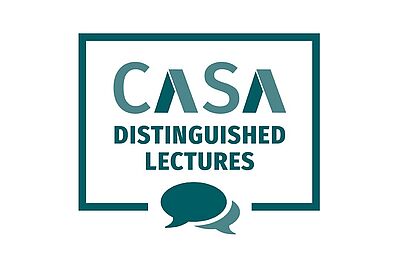Wir laden herzlich zur nächsten CASA Distinguished Lecture in Präsenz am Dienstag, 9. August 2022, ein.
Wann: 9. August 2022, 14:00 Uhr
Wo: Gebäude TZR ("MB"), Level 1, Room SM-MW-106, Universitätsstraße 142, 44799 Bochum
Es besteht auch weiterhin die Möglichkeit digital an der Veranstaltung teilzunehmen.
Zum Zoom-Webinar (Code: 946428)
Abstract: Artificial Intelligence (AI) and Machine Learning (ML) systems "learn" to make decisions based on the data with which they are trained. Such systems are often used to make critical decisions in which mistakes can have serious consequences – for example, systems for approving credit, job and college applications, digital forensic procedures, and computer-user authentication. In these kinds of applications AI/ML decision algorithms are tasked with distinguishing between legitimate and fraudulent or wrong behavior. He will show that minor degradations in as little as 1-2 percent of the training data can change decision outcomes by nearly 20 percentage points, wrongly reversing distinctions between legitimacy and fraudulence. In one real-world application – user authentication – data corruption was induced by USB keyboards injecting artifacts into the data, effecting an infidelity to the true signal. We illustrate how this phenomenon was discovered and validated.
Biographie: Roy Maxion is a Research Professor in computer science and machine learning at Carnegie Mellon University, where he is also the director of the Dependable Systems Laboratory. He has long been a passionate proponent of foundational scientific methodology. He is an IEEE Fellow, and recently served as a member of the US National Academy of Sciences committee on Future Research Goals and Directions for Foundational Science in Cybersecurity. He is one of the founding members of the US Center for Statistics and Applications in Forensic Evidence.
Allgemeiner Hinweis: Mit einer möglichen Nennung von geschlechtszuweisenden Attributen implizieren wir alle, die sich diesem Geschlecht zugehörig fühlen, unabhängig vom biologischen Geschlecht.

Copyright: HGI, stock.adobe.com: chinnarach
CASA Distinguished Lecture mit Roy Maxion, 9.08.2022

Copyright: CASA
